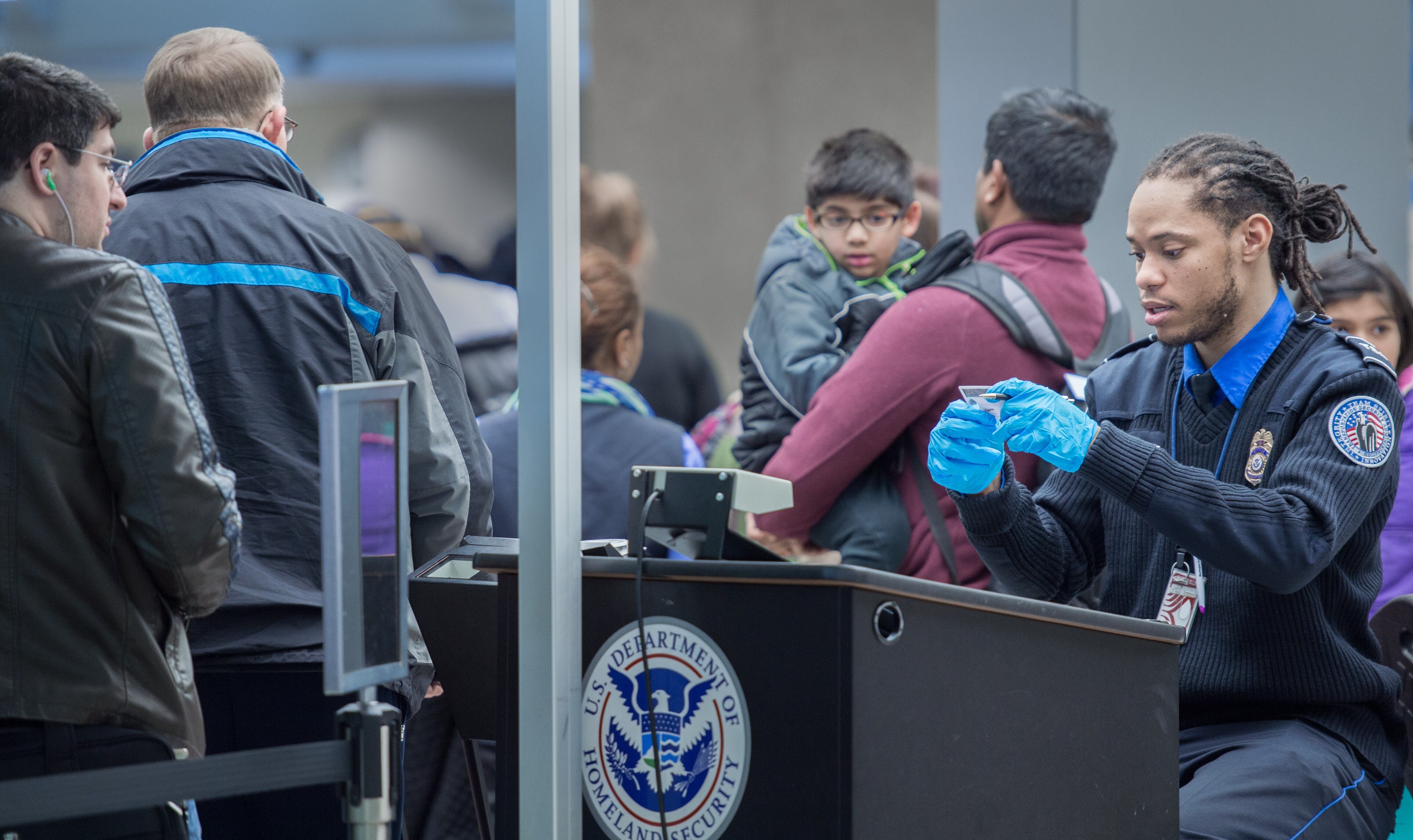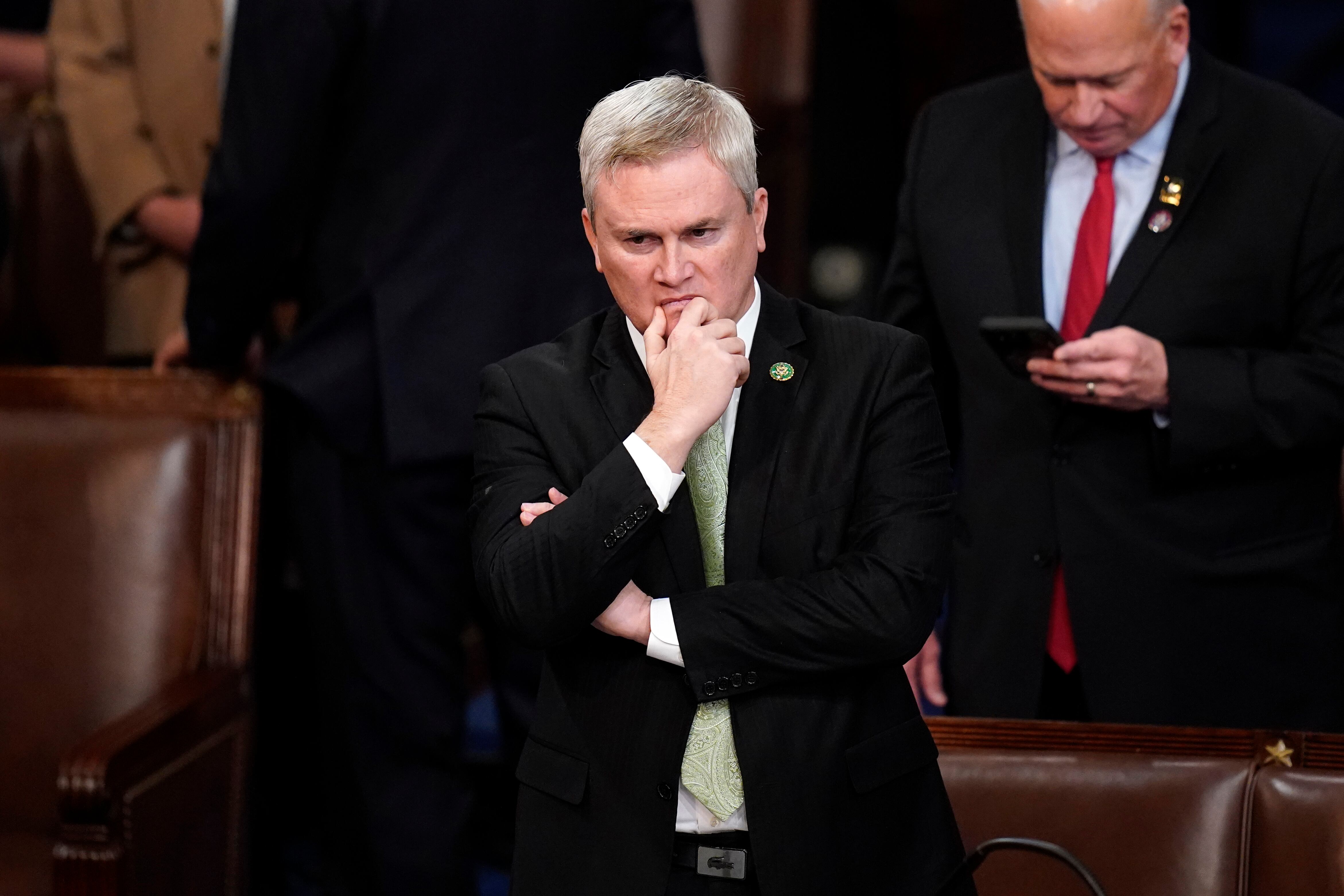Union representatives from the American Federation of Government Employees gathered on Tuesday to voice their demands from congressional leaders working just a block away.
On Tuesday, the large ballroom of the Regency Hyatt in downtown Washington D.C. was booming with the calls of union leadership enumerating their biggest lobbying priorities for the new split Congress, which is getting underway in the middle of President Joe Biden’s “pro-union” administration.
“We definitely want to work with every party, we want to work with every individual, because this about the federal employees and what they deserve,” AFGE’s national President Everett Kelley told reporters on Feb. 13.
More than 700,000 federal employees across agencies are represented by AFGE, and while the challenges facing agencies differed depending on their mission, the meeting showcased a series of priorities that were shared across the workforce.
Chief among them: pay raises.
Federal pay is a priority
The number proposed for 2024 is 8.7%, in line with what Virginia Rep. Gerry Connolly and Hawaii Sen. Brian Schatz called for in their Federal Adjustment of Income Rates Act. The two Democrats previously introduced similar legislation in the 115th, 116th and 117th Congresses.
“Every day, [federal employees] get up and do their jobs on behalf of he American people,” Connolly said at Tuesday’s event. “We ought to be honoring that service, never degrading it.”
That figure would nearly double this year’s average pay raise of 4.6% and could help close the gap between public and private sector pay.
The latest report of the Federal Salary Council shows that federal worker pay lags behind the private sector by nearly 23%.
The pay gap is just one of several issues that complicate pay policy, including a one-size-fits-all approach to adjustments considering differing labor markets for occupational groups, said a report by the President’s Pay Agent.
“We believe there is a need to consider major legislative reforms of the white-collar federal pay system,” the report reads.
Calls for reform have been included in several years worth of Pay Agent reports, but the system governing 70% of federal employees, the General Schedule, has gone relatively unchanged since it was created in 1949.
“At this point, I’ve not had any discussion of another [pay] system,” Kelley told reporters. “The GS system, in my opinion, is probably the best system. It addresses discrimination ... making sure that a person is paid equally.”
An average 30% pay raise is planned for Transportation Security Officers thanks to a boost in funding in the 2023 omnibus spending bill.
The pay raise is slated to go into effect in July. TSA Administrator David Pekoske said at the conference that his agency is working to make sure officers know how much of an increase they should receive next month.
RELATED

Benefits and the federal job market
Another area of focus for AFGE leadership is preserving and expanding benefits to keep federal jobs competitive.
One such bill that AFGE urged passage on is the recently reintroduced Comprehensive Paid Family Leave Act, which would provide federal workers with 12 weeks of paid leave per year to care for a sick family member, deal with their own medical emergencies or address needs when a family member is called for military service.
The White House earlier this month also directed agencies to support paid and unpaid leave for federal employees, even if they haven’t accrued enough time off, and in circumstances of dating violence, Federal Times previously reported.
Under the Family and Medical Leave Act of 1993, most federal employees get up to 12 weeks of unpaid leave per year.
Modernizing benefits for retirees is also on the agenda, especially for federal law enforcement officers who serve at a number of agencies and are deserving of first-responder 6(c) benefits that entitle beneficiaries to an annuity sooner, AFGE says.
Another bill affecting retirees, the Equal COLA Act, has received broad support among employee groups for its revision to cost-of-living adjustments that may lag inflation or are calculated differently between the Federal Employees Retirement System and the Civil Service Retirement System.
RELATED

“Unfortunately, when inflation is high, as it has been recently, FERS retirees only receive a diet COLA, reduced by as much as 1 percentage point,” said William Shackelford, national president of the National Active and Retired Federal Employees Association, in a statement. “This may not seem like a lot at first glance, but when the reduction compounds year after year, it may cost an average FERS retiree tens of thousands of dollars over the course of their retirement — and even more for some.”
Addressing aims at telework
Finally, Congress has also made recent moves to reel back telework for federal agencies if they can’t prove it won’t detract from productivity or cost savings. The SHOW UP Act, which passed the House on Feb. 1, has drawn ire from employees who say telework is just as efficient and improves workplace morale.
RELATED

“It’s my opinion that federal agencies should listen more attentively to the workforce because we’re in a time now where we really need to refocus, if you will,” Kelley told reporters. “If we’re going to be able to maintain fed employees, we have got to make sure that we are offering good benefits. In order for us to compete, we are going to have to be able to offer some forms of teleworking.”
D.C. Mayor Muriel Bowser’s third inaugural address touched on the issue’s local impact on her plan for a vibrant post-pandemic downtown.
“We need decisive action by the White House to either get most federal workers back to the office most of the time or to realign their vast property holdings for use by the local government, by non-profits, by businesses and by any user willing to revitalize it,” she said on Jan. 2.
Kelley reiterated to reporters that he wants to work with her and federal agencies on striking a balance with telework.
“I think that’s just a matter of us having a sit-down, a conversation, with the mayor and her administration,” Kelley said. “We haven’t done that yet, but I think that’s where it has to start.”
Molly Weisner is a staff reporter for Federal Times where she covers labor, policy and contracting pertaining to the government workforce. She made previous stops at USA Today and McClatchy as a digital producer, and worked at The New York Times as a copy editor. Molly majored in journalism at the University of North Carolina at Chapel Hill.





